A new report into the games released between E3 2016 and E3 2017 shows a horror Microsoft statistic.
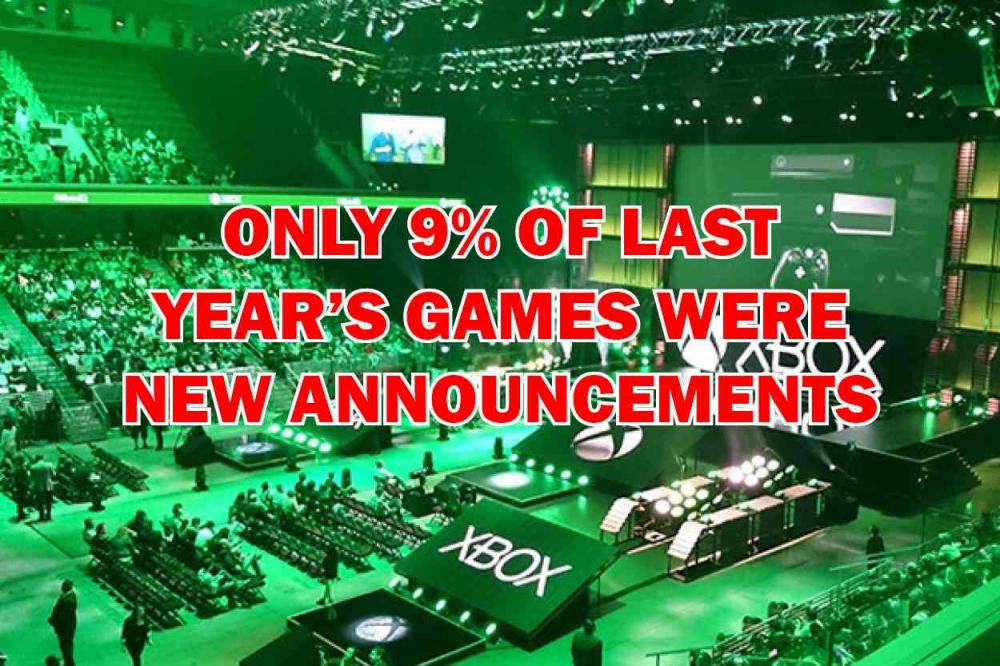
It’s been a tough 12 months to be an Xbox fan. It’s not like the console has been gathering dust unused in homes across the world. Far from it. But there’s been little in the way of exciting announcements to rally behind. In fact, outside of Halo Wars 2 - which is in truth just a spin-off title in a niche genre - it’s been slim pickings on the blockbuster exclusive front since last December’s Dead Rising 4. Worse, previously announced prospects like Scalebound and Fable Legends have been cancelled.
The one shining light has been the promise of Project Scorpio, the most powerful console ever made, but the problem isn’t hardware. The problem is software. Xbox needs big blockbuster games consumers cannot get elsewhere if it’s going to bring in new players and prevent jaded fans from being tempted by Sony’s promise of consistent, exclusive blockbusters and VR on PS4.
Now a new report has emerged showing exactly how Sony and Microsoft’s 12-months between E3 press conferences has gone. There’s a tonne of information in the report, but a few of the most notable figures include;
1. Only 9% of the 33 games mentioned in the E3 2016 Microsoft press conference were unannounced prior to the show, one of which was Gwent: The Witcher Card Game. (Sony’s press conference consisted of 63% new games).
2. 70% of the games shown in the Microsoft E3 2016 presser were indie titles. (Sony’s conference contained just 6% indie titles)
3. Of all the games mentioned, only 55% have actually come out. (Sony released 67% of its mentioned games)
I really hope that Microsoft is aware of these figures. This is exactly what is leaving some Xbox One fans – and certainly potential new owners - disillusioned with the console. Microsoft needs to lift that 9% up to 60% or 70%. I’m all for the indies, but they shouldn’t be the lion’s share of the showcased titles – especially given many of them aren’t exclusive.
Usually I don’t think gamers would be too fussed on the number of titles that get released within a year of the press conference, but this time around it’s different. With so few exclusive blockbusters released in the last year, Microsoft need to not only announce new titles, but rock solid release dates to go with them.
Hit all these markers, and Microsoft will come out of E3 2017 with its chin high and plenty of positive press. Repeat last year’s performance, however, and Project Scorpio won’t save them.
Where to Next?
If you love your science-fiction, and in particular games and universes like Mass Effect, then you should definitely check out Adam Exits. The brand new novel by lifetime gamer Nicholas Abdilla is pulling in five star reviews and will immerse you in a great new world somewhere between Star Wars and Phillip K. Dick. There's more information here, or you can pick it up on Amazon or iTunes now.
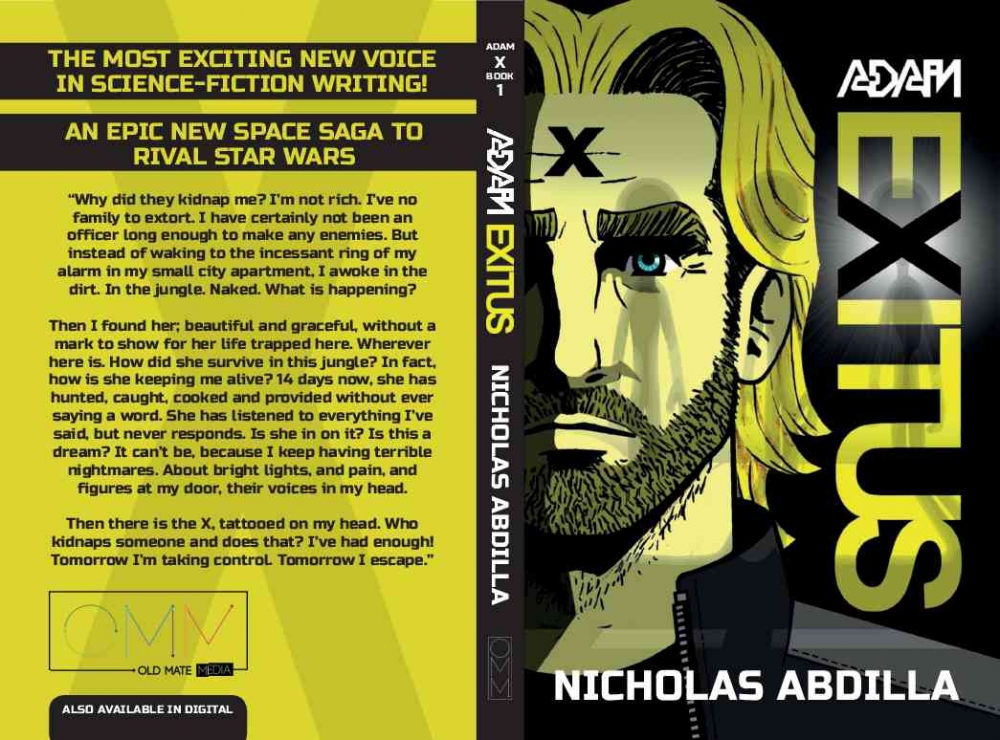
Are Sony and Microsoft handing Nintendo a competitive edge by not meeting the needs of parent gamers with smaller controller options?
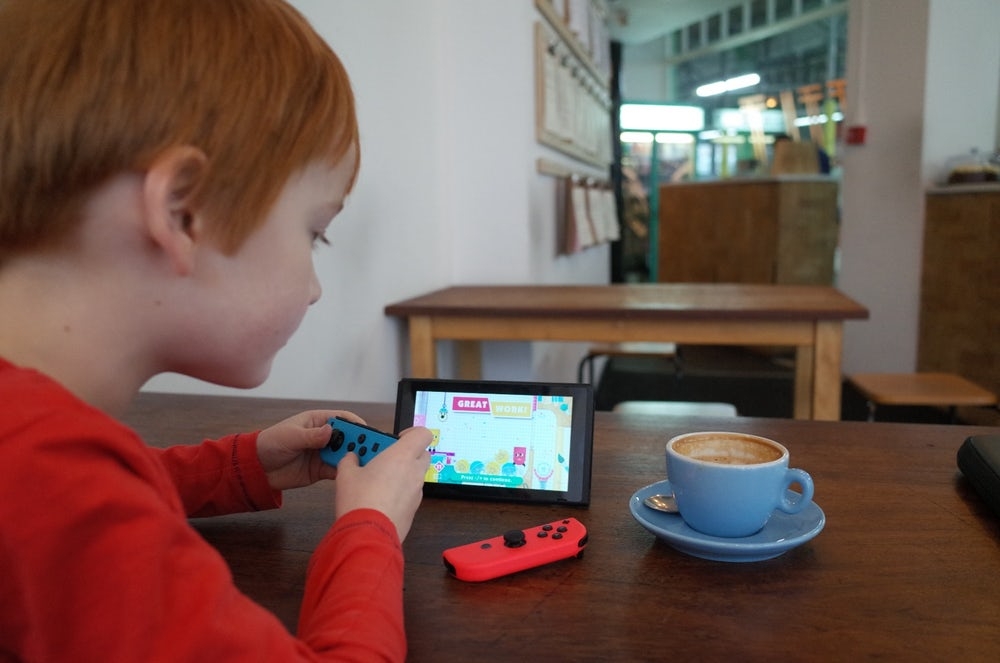
I have a son. I have two actually and a daughter: truly a lucky man! My first born is now five and of an age where we’ve started to enjoy playing games together. As in I play, and he watches. For the most part. With the Wii U and now the Switch, there are experiences like Yoshi’s Woolly World and even Super Mario 3D World he is capable of playing himself. But on Xbox One or PS4, there’s nothing for him. It’s not the range of games that is the problem or their complexity – it’s the controllers.
Greed is the fuel that drives this multiplayer descent into the darkest parts of space. Can industry veterans Ghost Ship Games strike gold with this indie mining simulator?
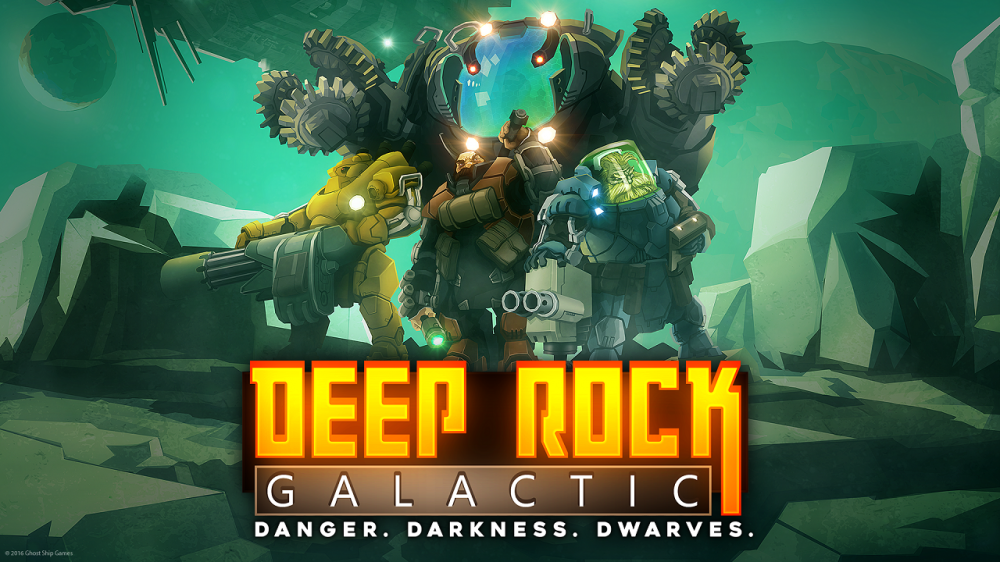
It's dark, deep below the earth.
In the distance, I can hear little clawed feet skittering around the cavern walls and the faint sound of one of my partners crying out.
Maybe he found something, maybe he’s under attack. I ask if everything is okay over the comms, but there's no response. I’ll head back just after I check out the next room.
Rounding a corner the cavern opens up, and down a long stretch of blackened stone walls I can see a tiny glint of gold. I run towards it only to see another glint, and another. In fact, a whole wall of sparkling, glittering gold. It’s enough to pay for the whole expedition, and then some.
The skittering behind me pulls my attention away from the precious metal, and face-to-face with the swarm. A seething mass of teeth and beady eyes. I yell out to my team mates, but they're too far away. I was too greedy, too hungry for gold, and now I'm being eaten alive by ravenous monsters deep below the earth.
This is Deep Rock Galactic, a first-person mining simulator. But it's also much more than that. It has elements of Red Faction, Minecraft, and Left 4 Dead with class-based combat and platforming, all wrapped up in a stylish low-poly package.
The story you are about to read isn’t going to win any “father of the year” awards. But if I had caught it on video, I would be a millionaire already.
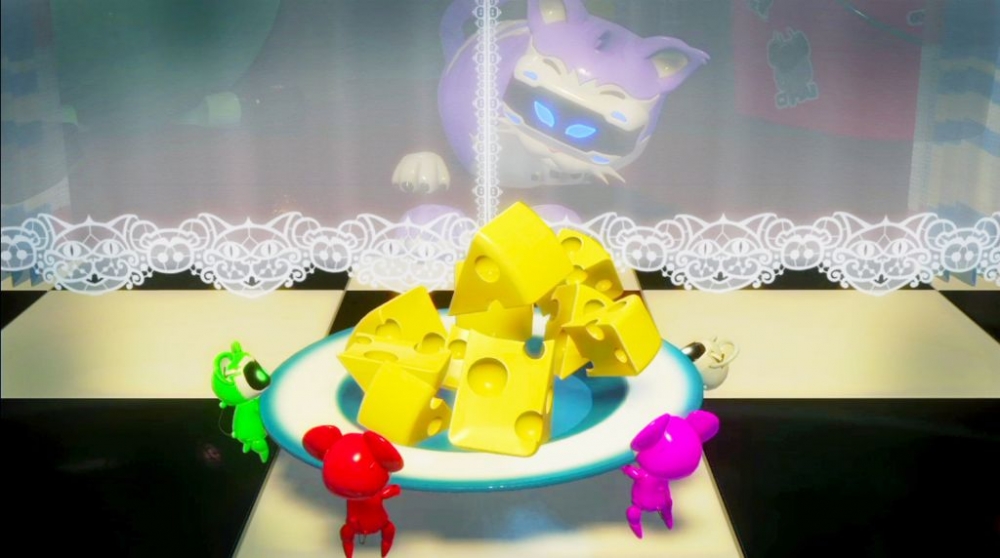
I’ve been testing a lot of PlayStation VR lately following its recent launch in October. One of the games I very much enjoy is Playroom VR, a collection of minigames done with a kid friendly aesthetic. One of these games is two player, and has the person in VR playing as a cat hiding behind a curtain. The other players, using a standard controller and watching the TV screen, play as mice hiding under a tin can trying to sneak around to capture cheese. If the cat sticks his head out of the curtain at the same time the mouse is moving, the cat wins.
Literally and figuratively, a game of cat and mouse.
Bethesda’s New Review Policy is Risky Business
In a recent Blog post, Bethesda has revealed it will no longer send out advanced review copies of games to media, a move that is sure to flood the internet with inaccurate information and poor reviews.
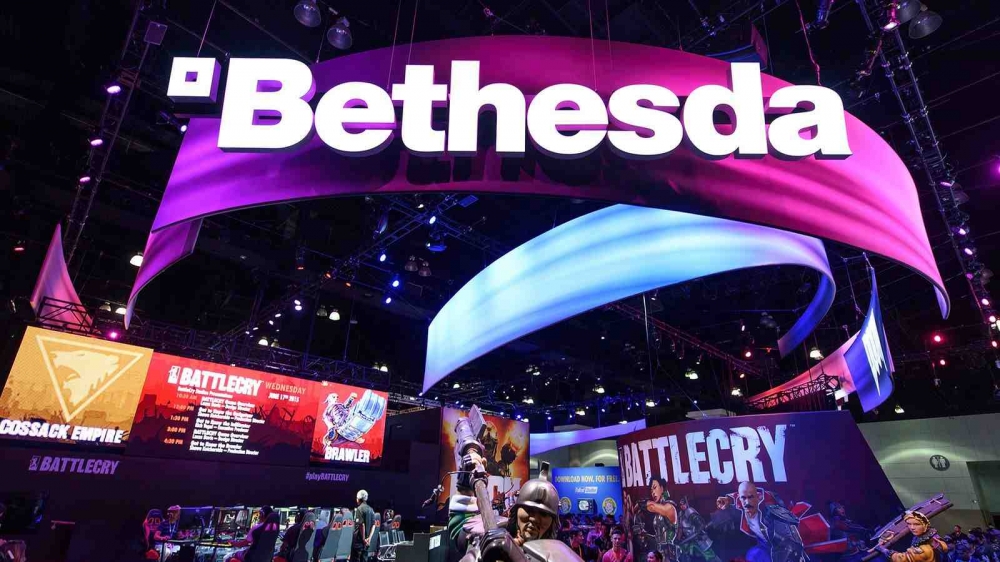
Bethesda Softworks is one of the brightest emerging publishers in the video game industry. Building on the storied foundation of its own Elder Scrolls and Fallout series, the company – a subsidiary of Zenimax –snapped up a number of other big name studios to its label earlier this decade. In quick succession, the legendary id Software, Arkane studios, MachineGames and Tango Softworks signed on, and soon after Battlecry Studios was founded. Together, they have released such games as Doom, Dishonored, The Evil Within, Wolfenstein: New Order and Fallout Shelter.
In short, Bethesda has become a source of high quality, highly anticipated video game experiences. And having spent plenty of time with the developer, I applaud the way they operate; with each team completely free to explore their creative visions without overseers spoiling the broth.
In the past 24-hours, Bethesda has declared that it is changing its review policy. It wants media and gamers to experience a new title at more-or-less the same time as each other. As such, review copies will arrive with journalists the day before release, and there are some big problems with this stance.
When we lose sight of why we game, our hobby becomes nothing more than a humourless chore.
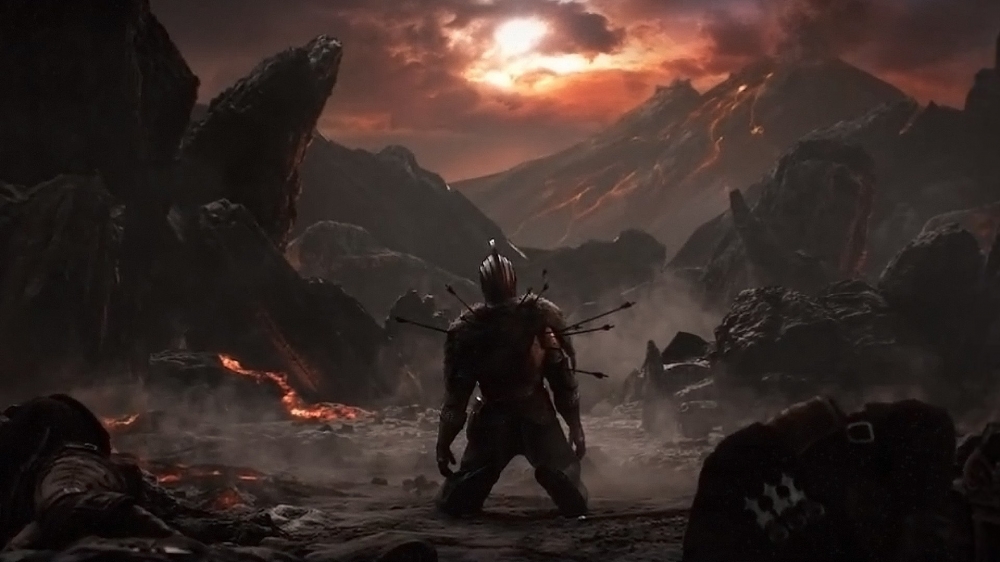
My 18-month old daughter had finally gone to sleep. As is my usual evening ritual, I trudged downstairs and plonked myself, bleary-eyed and exhausted from work, in front of the TV ready to game the remainder of the night away. For 10 minutes I stared blankly at the screen, unsure of what to play. My ever growing "pile of shame" beckoned to me with merciless taunts and jeers. The pressure to pick up a game - any game - merely to wipe off my backlog was immense. It was at that moment I had an epiphany: sadly, my wonderful hobby had become nothing more than a humourless chore.
Despite the initial groundswell of support, the OUYA microconsole faded from the limelight just as quickly as it sprang up. So why did the OUYA fail to connect with gamers?

Though there were doubters, the excitement was palpable. A new microconsole was poised to enter the market, ushering in a new way to game with the spectacular promise of “upending console gaming”. With brash confidence and even greater ambition, the stylish OUYA was born. Running on the Android operating system and priced at just US$99, many people felt that the OUYA’s lofty goal of breaking into living rooms dominated by traditional console manufacturers was in the realm of possibility.
Fast forward several years and the only remaining legacy of the OUYA is the dust-covered units either packed away in disgruntled early adopters’ cupboards or jamming up eBay’s auction listings. The company itself is no more, with the leftover scraps bought by Razer Inc. RIP OUYA, 2013-2015.
With such momentum behind it, how could the OUYA fall from grace so spectacularly in only a few short years? Now that the dust has well and truly settled – even if the bitterness still lingers – we thought it might be a good chance to reflect on the little console that couldn't. Sorry, OUYA owners – our condolescences.
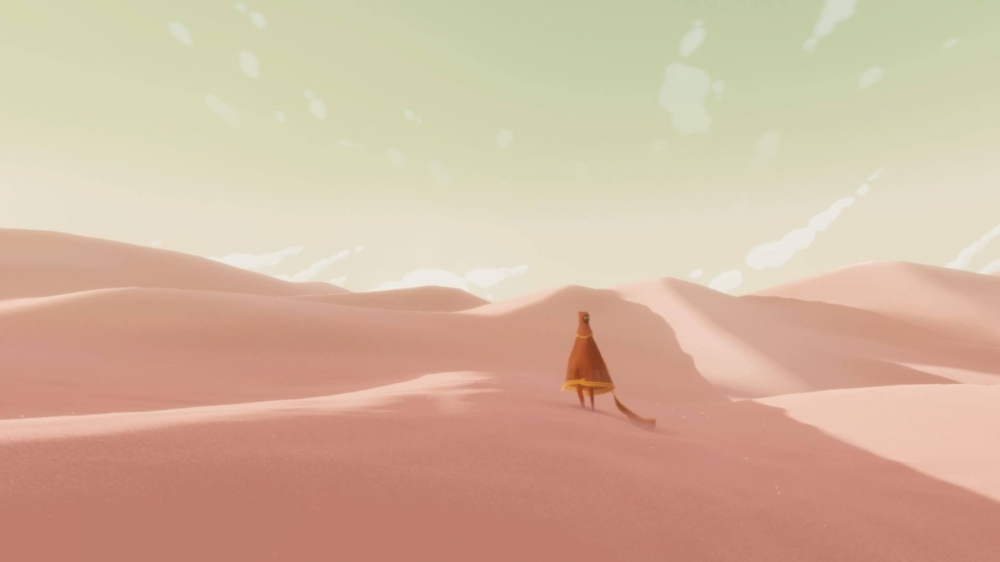
It starts with a cello.
I'm sitting here on my couch, headphones plugged into my DualShock 4. My TV is displaying the title page for Journey - the multiple award winning indie darling by which every other artistic, "experiential" game has been measured since its release four and a half years ago.
It's been waiting patiently for me on my PS4's hard drive since being included in September's PS Plus offerings, and I've finally set aside some uninterrupted time in which to experience what all the fuss has been about. I’ve read and been told that a couple of hours is all I’ll need.
Selecting the tile from my PS4's menu, followed by pushing down on the controller has filled my screen with a lonely figure that I feel I already know from reading years of games media coverage. Now I sit listening to the music that’s been triggered by my actions, doing as that red-scarfed figure is doing - gazing into a distance of sand dunes. I don't want to hit start just yet.
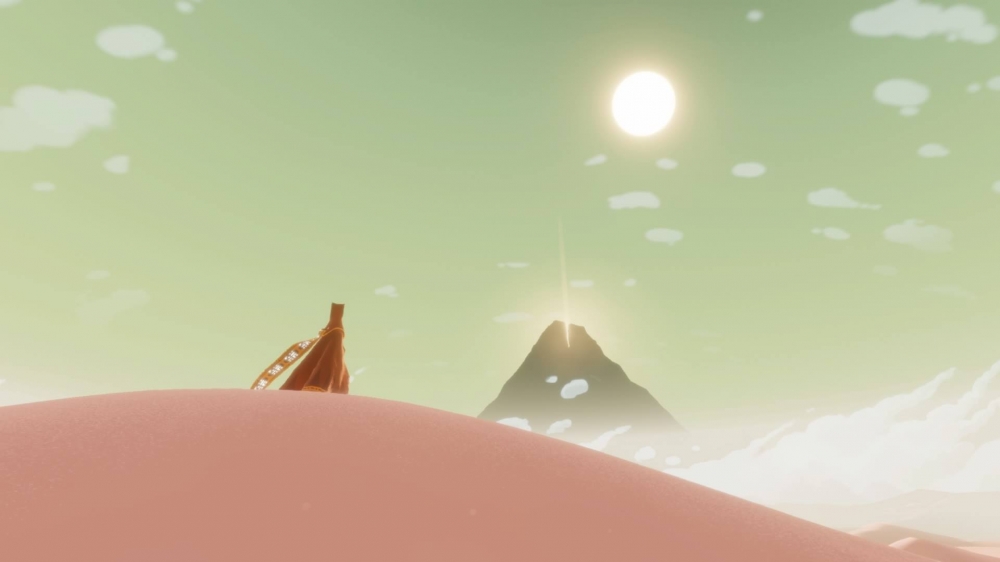
The cello is joined by a harp, and a couple of bars later, a flute.
Journey is just one of those things I've never gotten around to, and I feel a little guilty typing those words given its reputation as such a must-play title. But I've played a lot of games in the last few years, and there are only so many hours in the day. Life just happens.
Four and a half years of hearing how good a game is creates a lot to live up to, and as I sit here listening to Austin Wintory's much-praised music on this title screen, I can already hear why the soundtrack alone has received so many accolades. I want to experience what I've read over the years so many other fans have experienced, but I’m anxious - have I built it up too much? Will I be disappointed? I don't want to be disappointed.
Hype prior to release is just good marketing, but a game enjoying an unassailable reputation for years after its release is an altogether different beast. Reputation is built on something substantial - real experience passed on by word-of-mouth and excited keystrokes.
Thinking on Thatgamecompany’s success with Journey causes my thoughts to turn to Sean Murray and his entire team at Hello Games. I wonder how differently gamers’ and gaming media’s perception of No Man’s Sky would be had it been released quietly without its years of hype and mystery. Imagine if No Man’s Sky came out of nowhere, with just a simple announcement to put it on the radar. In that alternate universe are we now showering praise on the bold ambition a small team took upon itself to realise?
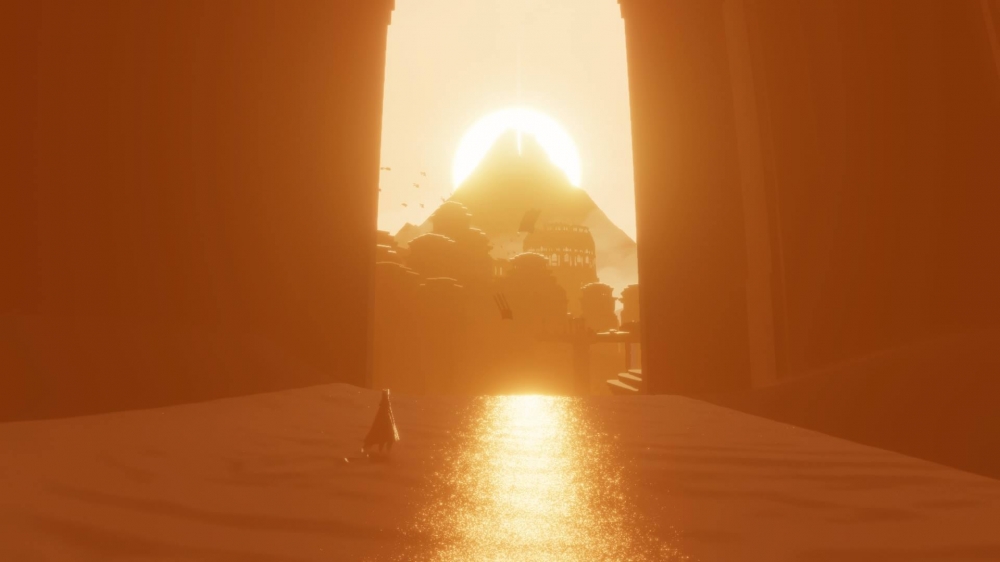
A full orchestral swell lifts the melody of the flute (which is now being doubled by a violin) over a crest that pulls at heartstrings, perhaps a musical representation of having gained the top of one those sand dunes to reveal something wonderful; a secret, a marvel.
But have I built it up too much?
I hit start.
Only two hours later the end credits roll; mysteries have been revealed, and Thatgamecompany’s masterful loop has closed.
It was worth the wait.
Writer:
Garry Balogh
If you are wondering who we are, we're primarily a digital magazine for the iPad focused on the coverage of indie video games. Run by the former editor of Game Informer, you'll find worldwide exclusives, but also an interactive media experience unlike any you have seen before. If you have an iPad, you should check out the free sample issue at the very least, or enjoy one of our other episodes as listed below.
Get Every Episode:
- Episode 1 - Includes The Making of République (*free sample issue*)
- Episode 2 - Includes The Making of Oceanhorn
- Episode 3 - Includes The Making of Monument Valley
- Episode 4 - Includes The Making of Last Inua
- Episode 5 - Includes The Making of World of Tanks Blitz
- Grab It Episodes 2-5 Bundle
- Episode 6 - Includes The Making of Magic the Gathering
- Episode 7 - Includes The Making of Tiny Troopers Alliance and Midnight Star
- Episode 8 - The PAX AUS edition
- Grab It Presents Nihilumbra - Classics Collection
- Grab It Presents Ultimate Indie Game Reviews Vol 1.
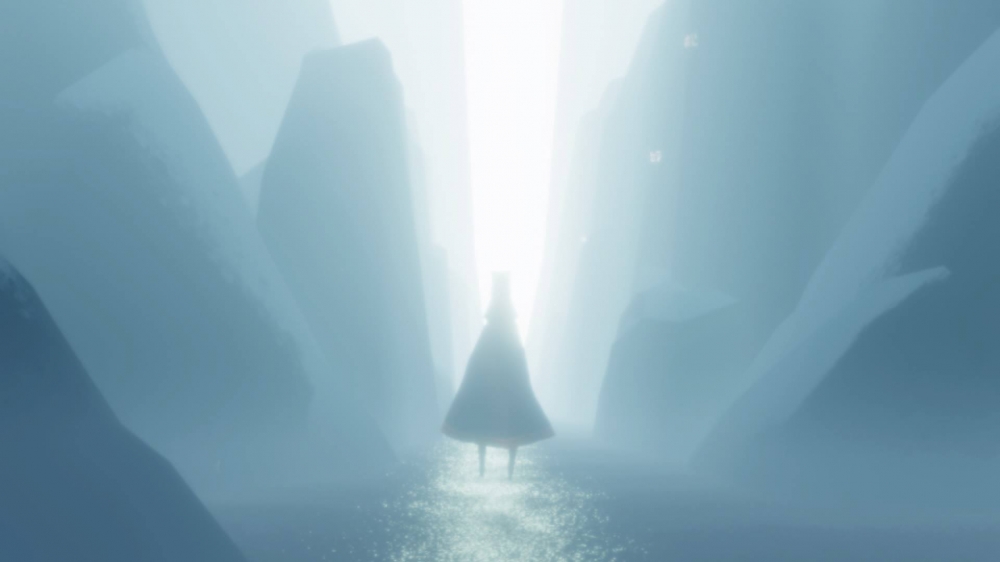
Grab It counts down its top 10 most anticipated adventure games coming out in the near future.
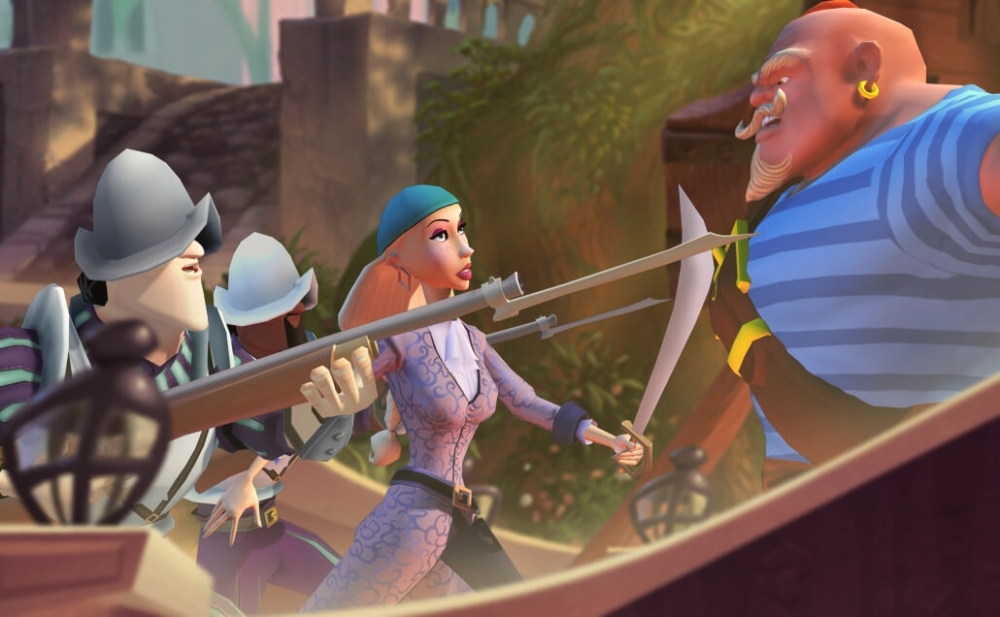
The fast paced and ever changing nature of the gaming industry means it can be pretty easy to overlook quality titles on the horizon. Throw into the mix the sheer quantity of games released every year and a serious lack of time to even make a dent in your pile of shame, it's no wonder not all games get the attention they deserve.
Here at Grab It, we're quite fond of adventure titles. Enough so that we've put together a list of our top 10 most anticipated adventure games coming out in the near future. Many of these titles may have flown under your radar, especially as they come from smaller indie developers. But that shouldn't scare you off because the quality of these games is shaping up to be on par with anything you might have played. Like all things in life, keep an open mind and you might just be surprised at how much you enjoy yourself.
Without further ado, here are our top 10 adventure game "diamonds in the rough" to be on the look out for.
In this commercial world of data collecting, free-to-play, ad-support, and in-app-purchases, we take a subversive and psychedelic trip into virtual reality.

My virtual self sits in a room that can only be described as sparse. Sparse not just for its simple and minimal furnishings, but for its very creation - a black and white, hand-drawn, pencil-on-paper rendering of a room with few distractions. A warm and calming voice coaxes me to relax and take some time to just look around, easing me into what is my first VR experience.
The room is not large but it feels spacious due to both its lack of clutter, and its large open windows looking down onto active streets below. I follow the instructions from the friendly voice narrating in my headphones and look around at the table, chair, bed, coffee machine, and other simple, homely features. Without consciously realising it at the time, I'm already relaxing and surrendering to that "presence" I've read so much about in the last few years - the virtual reality parlance used to describe our minds and bodies being successfully convinced we are somewhere we are not.
This virtual room is a stylised version of one that exists in the real world - the Room On the Roof - an artist space atop the de Bijenkorf department store in Amsterdam. In an effort to elevate the act of shopping beyond that of a mere consumerist pleasure, and create a more premium experience, this Dutch department store invites artists to spend time in its tower room to create works of art shoppers can later view. It's a nice idea - infusing the shopper's urge with a touch of artistic creation, with each side benefiting by gaining a small foothold in the other's world.
Drawing Room is the result of Jan Rothuizen's residency in Room On the Roof, and it's eight and a half minutes I won't soon, if ever, forget.















